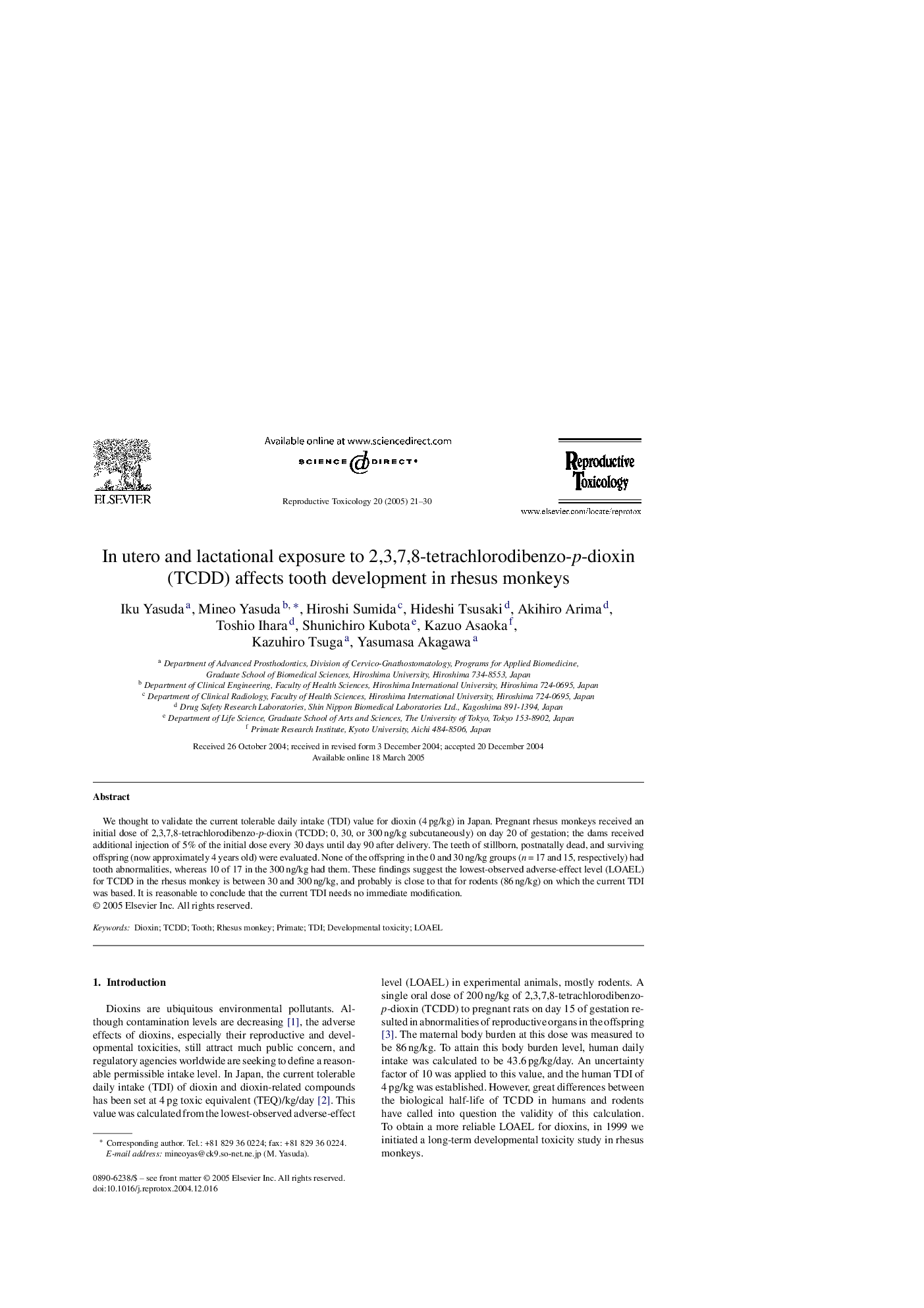| Article ID | Journal | Published Year | Pages | File Type |
|---|---|---|---|---|
| 9033958 | Reproductive Toxicology | 2005 | 10 Pages |
Abstract
We thought to validate the current tolerable daily intake (TDI) value for dioxin (4 pg/kg) in Japan. Pregnant rhesus monkeys received an initial dose of 2,3,7,8-tetrachlorodibenzo-p-dioxin (TCDD; 0, 30, or 300 ng/kg subcutaneously) on day 20 of gestation; the dams received additional injection of 5% of the initial dose every 30 days until day 90 after delivery. The teeth of stillborn, postnatally dead, and surviving offspring (now approximately 4 years old) were evaluated. None of the offspring in the 0 and 30 ng/kg groups (n = 17 and 15, respectively) had tooth abnormalities, whereas 10 of 17 in the 300 ng/kg had them. These findings suggest the lowest-observed adverse-effect level (LOAEL) for TCDD in the rhesus monkey is between 30 and 300 ng/kg, and probably is close to that for rodents (86 ng/kg) on which the current TDI was based. It is reasonable to conclude that the current TDI needs no immediate modification.
Related Topics
Life Sciences
Environmental Science
Health, Toxicology and Mutagenesis
Authors
Iku Yasuda, Mineo Yasuda, Hiroshi Sumida, Hideshi Tsusaki, Akihiro Arima, Toshio Ihara, Shunichiro Kubota, Kazuo Asaoka, Kazuhiro Tsuga, Yasumasa Akagawa,
